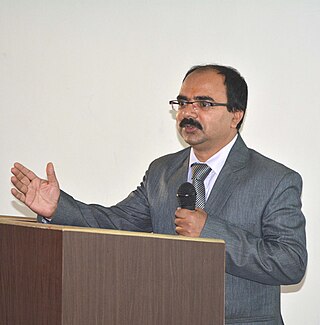
The CSIR- National Physical Laboratory of India, situated in New Delhi, is the measurement standards laboratory of India. It maintains standards of SI units in India and calibrates the national standards of weights and measures.

The National Institute for Interdisciplinary Science and Technology is a constituent laboratory of CSIR, India, engaged in research and development activities in the field of agroprocessing and technology, microbial processes and technology, chemical sciences and technology, material sciences and technology and process engineering and environmental technology. Around approximately 80 scientists and 300 research fellows are working in various scientific disciplines in this institute. The programmes have a blend of basic research, technology development and commercialization; have specific thrusts on frontier areas of research, National Mission Projects, regional resource-based activities and R & D - Industry - Academia linkages. The laboratory has excellent collaborative programmes with major National & International agencies too. the present director of the institute is Dr.C. Anandharamakrishnan.

The Indian Institute of Petroleum (IIP), established in 1960, is one of the 37 constituent laboratories of the Council of Scientific and Industrial Research (CSIR), dedicated to R&D in the hydrocarbon sector.
Central Scientific Instruments Organisation is a Chandigarh, India-based national laboratory dedicated to research, design and development of scientific, and industrial instruments. It is one of the constituent laboratories of the Council of Scientific and Industrial Research (CSIR), an Indian industrial research and development organisation situated at Chandigarth's Sector 30C.
The Department of Biotechnology (DBT) is an Indian government department, under the Ministry of Science and Technology responsible for administrating development and commercialisation in the field of modern biology and biotechnology in India. It was set up in 1986.
The National Environmental Engineering Research Institute (NEERI) in Nagpur was originally established in 1958 as the Central Public Health Engineering Research Institute (CPHERI). This renaming reflects the shift of concern from sanitation to wider public health matters. It has been described as the "premier and oldest institute in India." It is an institution listed on the Integrated Government Online Directory where all Indian government websites can be searched for. It operates under the aegis of the Council of Scientific and Industrial Research (CSIR), based in New Delhi.

The Ministry of Science and Technology is the Indian government ministry charged with formulation and administration of the rules and regulations and laws relating to science and technology in India.

North East Institute of Science and Technology (NEIST), Jorhat is a constituent establishment of the Council of Scientific and Industrial Research (CSIR), a premier R&D organization of India, which has a chain of laboratories across the country. This laboratory was established in 1961 under the chemical science group of CSIR and originally its main aim was to develop indigenous technologies by utilizing the immense natural resources of northeastern India like Petroleum, Coal, Natural Gas, Minerals, Tea, Microbes, Aromatic and Medicinal plants. Theme of the institute for the year 2020 is "Revitalizing NEIST for Strengthening North East."
The Council for Scientific and Industrial Research (CSIR) is South Africa's central and premier scientific research and development organisation. It was established by an act of parliament in 1945 and is situated on its own campus in the city of Pretoria. It is the largest research and development (R&D) organisation in Africa and accounts for about 10% of the entire African R&D budget. It has a staff of approximately 3,000 technical and scientific researchers, often working in multi-disciplinary teams.

CSIR Institute of Genomics and Integrative Biology (CSIR-IGIB) is a scientific research institute devoted primarily to biological research. It is a part of Council of Scientific and Industrial Research (CSIR), India.
Banuri (Palampur) is Ward No. 14 of MC Palampur which is situated in Dhauladhar Valley in Himachal Pradesh (India). It has around 4 km area and population around 3000. Banuri has many tea gardens. It has a small river (khad) named Oa at its one end. It is situated 4 km away from Palampur ISBT. Also near by is artists' colony Andretta, Himachal Pradesh.

National Institute of Science, Technology and Development Studies (NISTADS) was a unit of the Council of Scientific and Industrial Research in India. It was involved in the studies of various aspects of interaction among science, society and state and researching the interface among science, technology and society.

Garikapati Narahari Sastry is an Indian chemist. He has taken charge as Director of CSIR-North East Institute of Science and Technology, Jorhat, Assam on 19 February 2019. After taking charge as the Director, he has worked towards converting knowledge in the areas of computational modelling and Artificial intelligence from basic to translational research, by working closely with society and industry. Ultimately, revitalizing the strength of science and technology is essential in achieving the self-reliant and strong India. In the era of Industry 4.0 and 5.0, combining our traditional wisdom with modern science appear to be indispensable in the sectors such as Education, Health, Agriculture, Industrial and Societal development at large. Prior to joining as the Director, he headed the Molecular Modelling Division at the CSIR Indian Institute of Chemical Technology in Hyderabad, India. Sastry has made pioneering contributions in the areas of computational chemistry and computational biology.
Pushpa Mittra Bhargava was an Indian scientist, writer, and administrator. He founded the Centre for Cellular and Molecular Biology, a federally funded research institute, in Hyderabad. He was outspoken and highly influential in the development of scientific temper in India, and argued that scientific rationalism needed to be cultivated as a civic duty.

The Central Mechanical Engineering Research Institute is a public engineering research and development institution in Durgapur, West Bengal, India. It is a constituent laboratory of the Indian Council of Scientific and Industrial Research (CSIR). This institute is the only national level research institute in the field of mechanical engineering in India.
Asis Datta is an Indian biochemist, molecular biologist and genetic engineer, known for his research on genetically modified foods and food nutritional security. He was the founding Director of the National Institute of Plant Genome Research and is credited with the discovery of genes that assist in extended preservation of fruits and vegetables. He is a recipient of the Shanti Swarup Bhatnagar Award, the highest Indian award and in the Science category, and was awarded the fourth highest civilian award of the Padma Shri, by the Government of India, in 1999. In 2008, he was included again in the Republic Day Honours list for the third highest civilian honour of the Padma Bhushan.
Alok Bhattacharya is an Indian parasitologist, academic and a professor at the School of Life Sciences of the Jawaharlal Nehru University. He chairs the Biotechnology Information System Network (BITSNET) as well as the Life Sciences Expert Committee of FIST program of the Department of Science and Technology (DST). He is an elected fellow of the Indian Academy of Sciences and the Indian National Science Academy and is known for his studies on Entamoeba histolytica and species-specific calcium binding protein and its gene.
Vinod Kumar Gaur is an Indian seismologist,a former director of the National Geophysical Research Institute and an honorary emeritus scientist at CSIR Fourth Paradigm Institute, known for his prediction of the April 2015 Nepal earthquake. He is reported to have conducted extensive studies on the tectonics of the Himalayas and is an elected fellow of the National Academy of Sciences, India, The World Academy of Sciences, Indian Academy of Sciences and the Indian National Science Academy. The Council of Scientific and Industrial Research, the apex agency of the Government of India for scientific research, awarded him the Shanti Swarup Bhatnagar Prize for Science and Technology, one of the highest Indian science awards for his contributions to Earth, Atmosphere, Ocean and Planetary Sciences in 1979.

Sanjeeva Nayaka is an Indian lichenologist. He is a Chief Scientist at CSIR-National Botanical Research Institute (CSIR-NBRI), Lucknow. He is in charge of the lichenology laboratory. He serves as managing editor of the journal Cryptogam Biodiversity and Assessment, and editor of ILS eLetters, both published by the Indian Lichenological Society.
The Defence Institute of Bio-Energy Research (DIBER) is an Indian defence laboratory of the Defence Research and Development Organisation (DRDO). Located in Haldwani in Uttarakhand state. It conducts research and development of bioenergy as well as the sustainable and eco-friendly high altitude agro-technologies in the Indian Himalayan Region for the use of Indian Military. It has developed a range of vegetable varieties suitable for mid to high altitude.









